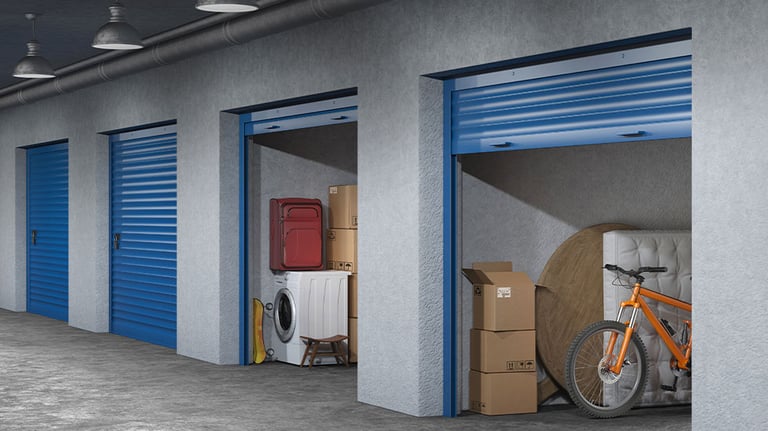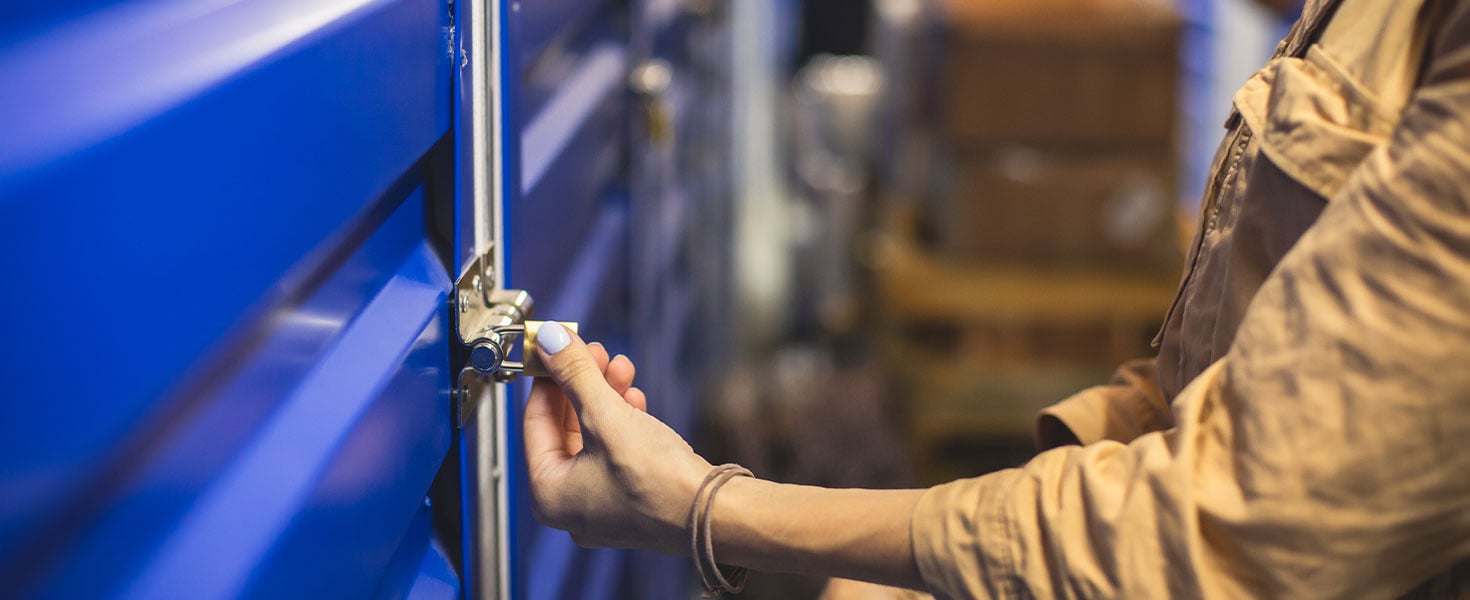
Need extra space for storage and considering getting a storage unit? You may need more protection for your items in addition to your homeowners or renters policy.
Even though items in a storage unit aren’t technically in your home, your homeowner’s insurance policy may help protect those items from certain perils. However, your coverage may be limited and not cover all of your valuables. Read on to learn more.

Homeowners insurance coverage for contents in a storage unit
“Personal property” is a term that refers to possessions stored inside your home and elsewhere. Standard home insurance policies reimburse you for damaged or stolen personal property items up to a certain coverage limit.
Most homeowners and renters insurance policies also have “off-premises” personal property coverage that gives protection to your personal property that is not inside your home, such as items you keep in storage units. However:
- Coverage varies depending on the type of loss and other conditions.
- Coverage for items in a storage unit may not be the same as coverage for things you keep in your house. Typically, the coverage is a percentage of the total personal property insurance limit available to the items in your house. For example, if your home policy includes up to $100,000 worth of personal property coverage, the policy may only cover up to $10,000 for items in storage.
- Some items such as jewelry, firearms, collectables, and other expensive items are limited or excluded from coverage.
- If your policy has any type of exclusion to specific kinds of damage or loss, or exclusions of certain kinds of personal property, that exclusion will extend to items in your storage unit.
It’s important to read your policy carefully and talk to your insurance agent to learn what is and isn’t covered, and whether you need additional coverage to protect your belongings.
What is storage unit in insurance
Most self-storage facilities require customers to have self storage insurance on stored items. If your homeowner’s policy doesn’t provide adequate coverage, the storage facility may offer to sell you a policy of their own or direct you to a third-party insurer. In some cases, these policies may cover additional perils compared to standard homeowners insurance.
Note that coverage with a storage unit insurance policy may be different than your homeowners policy; for example, it may reimburse based on the square footage of the unit and the actual cash value of the damaged items, not the replacement cost value. Be sure to read the policy carefully.

Additional considerations for items in storage
If the value of your stored items is greater than your home insurance off-premises coverage, consider:
- Increased coverage limits on your homeowners policy.
- Increased coverage for high-value items.
- Self storage insurance as additional coverage.
To further protect your items in storage:
- Choose the right storage facility by researching the background and history of the company, customer ratings and reviews, and complaints. Also make sure they have some type of theft protection such as cameras, locks, security codes, etc., and fire protection systems and restrictions.
- Keep an inventory of all items in your unit so that you have documented proof for your insurance company in the event of theft or damage.
- Choose a unit on a higher level since floods are not typically a covered accident. This can be especially useful when you have items that can be damaged by water.
- Pack your items properly in secure, waterproof totes or storage bins, use shelves to elevate items, wrap fragile items in bubble wrap, and cover items with old sheets or towels to keep out dust, dirt, and moisture.

